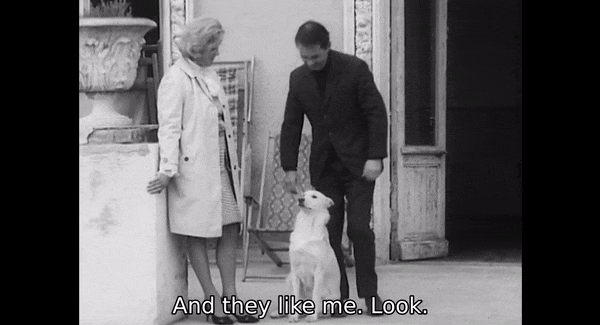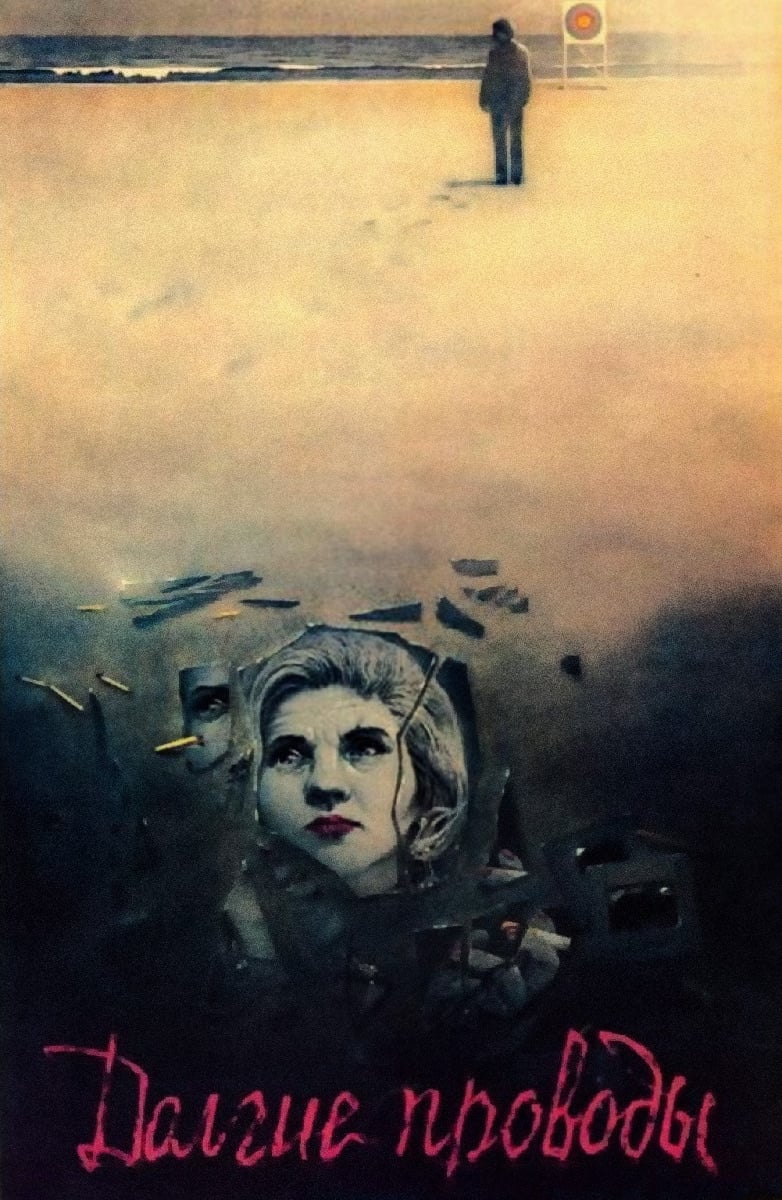The Long Farewell is a Soviet film drama directed by Kira Muratova. It was filmed in 1971, but it was put on a shelf and was only released on the screens in perestroika in 1987. It ranks 9th in the list of the 100 best films in the history of Ukrainian cinema .
A single woman has put all her efforts into raising her only son, Sasha. When Sasha grew up to become a teenager, he got tired of the nagging of her mother. One summer, he goes to visit his father in Novosibirsk, on the other side of the country. When he returns, his mother notices that Sasha had changed. She secretly reads a letter that Sasha received from his father and she finds out that Sasha doesn't want to live with her any longer. She cannot understand, she cannot accept. When Sasha realizes that she is suffering because of his wish to leave, he decides to stay.

***SPOILER ALERT***
F: Welcome to this week's first movie talk. We start with the second movie made by Kira Muratova. It was made in 1971 when Kira was 37 years old. It's a very simple drama about a divorced mother with a fragmented personality who has to deal with her emotions when she finds out that her boy wants to go live with his father. I will also call it a soviet coming-of-age movie about a boy who wants to let go of his mother and become an individual in a collectivist society.
K: Hey Freddy! It was a pleasant and thoughtful experience for me. Kira Muratova made a light and touching movie about a woman named Evgenia that tries to deal with the fears of losing her son. The story reminds of the conflicts present in books by Turgenev's, like his best known novel "Fathers and Sons". I also see the spirit of Lermontov in the character of Sasha, so I can say that there's quite a bit of inspiration from Russian authors. Kira Muratova shows us how the simplest plot formula 'the son has grown up' cracks the whole world for a mother. It is necessary to take a closer look at this crack, to capture the moment when the system fails, and suddenly the music, under which the universe danced, stops.
 |
| Amateur. That sword is not that big. |
F: What fascinates me about this movie is its ability to make me travel through time and get a tiny sense of soviet Odessa and its people. From working offices, telegram messages, and school playgrounds. It wasn't a boring experience, mainly because of this and some interesting conversations. I can't relate to the main focus of the story. The mothers identity crisis and clinging is not that interesting to me. I had some moments where I thought I had taken LSD accidentally, but no, the movie has time loops that add another layer of meaning to it.
K: Totally agree with you, Freddy. The conversations are interesting, sometimes funny, unpredictable and sad. As I live 5000 km away from my parents, the words that the old man asked to write down in the post office resonated with me. When we are young, we don't actually think about how hard it can be for our parents not to be able to see us. That's why the characters became truly alive and with the support of gifted actors, delightful camerawork and an amazing composer (Oleg Karavajchuk). They managed to create a whole world-mirror called "Long farewell".
 |
| The post office scene that Krasnaya mentioned. |
F: There were some WTF🤨 moments where I laughed, like in the scene from the clip below. The mother just throws her shoe at the dog for him to play with. Has there ever been a woman doing such a thing? Isn't that a hideous crime in their closet book of laws? (I hope no feminist is reading this). The dialogue between Sacha and the man on the street was also very interesting and made me wonder why this movie was shelved and just released after Perestroika. It seems really soft in its criticism and depiction of Soviet Ukraine. The Soviets were serious dudes and work was sacred. Krasnaya might have a better sense of its criticism, since she grew up in the USSR. Let's watch a more recent movie from Kira tomorrow, da?
 |
| I have to try this one someday 🤣 |
K: I really liked the character of Evgenia. She is just a real woman - always different, incredibly charming, and sometimes unpredictable. I can't explain why this film was on the shelves for a long 16 years (I was only 5 years old when the Soviet Union fell). I know that soviet censorship-tools often missed the target, rarely banned for meaningful reasons; sometimes it was decided simply by the hind leg of some official, as probably in this case. We will definitely continue our Kira Muratova week. Below our ratings I want to leave the poem by Mikhail Lermontov that appears in the movie. It's the character Sasha (Oleg Vladimirsky one and only screen appearance) and every young soul that tries to find its way in life.
Freddy's Score: 46/100
Krasnaya's Score: 73/100
FINAL SCORE

"The Sail"
White sail out in the bay
billowing in the wind.
Why sail so far away?
Why leave so much behind?
Winds must play on the seas
and masts creak in the wind.
Fortune is not what he seeks,
nor what he's left behind.
A golden light still pours
down onto deep blue seas;
this rebel, alas, seeks storms,
as if in storms lies peace.
by M. Y. Lermontov
translated by Robert Chandler


Comments
Post a Comment